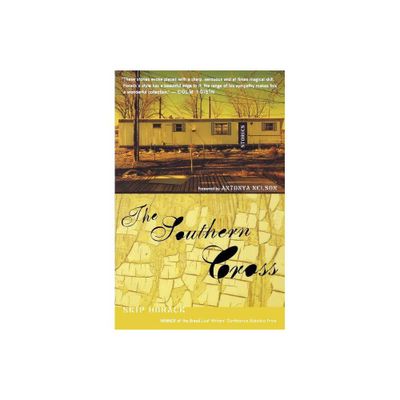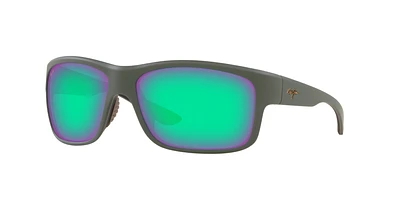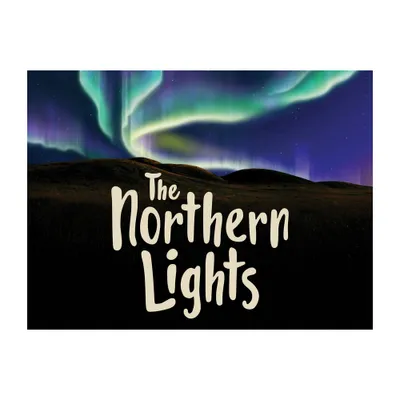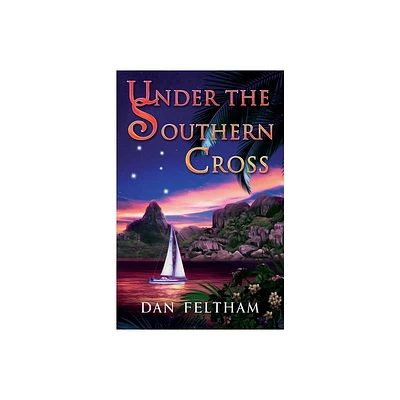Home
Northern Lights-Southern Cross
Loading Inventory...
Barnes and Noble
Northern Lights-Southern Cross
Current price: $16.99


Barnes and Noble
Northern Lights-Southern Cross
Current price: $16.99
Loading Inventory...
Size: OS
*Product Information may vary - to confirm product availability, pricing, and additional information please contact Barnes and Noble
The first studio album of
Band
originals since 1971's
Cahoot
-- in many respects,
Northern Lights-Southern Cross
was viewed as a comeback. It also can be seen as a swan song, in that its recording marked the last time the five members would work together in the studio as a permanent group, with a commitment to making a record they would tour behind and build on as a working band. The album was also, ironically enough,
the Band
's finest since their self-titled sophomore effort, even outdoing
Stage Fright
. It was spawned after a series of battery-recharging events -- the move of all five members out of Woodstock, New York and to Malibu, California, into a new, state-of-the-art 24-track studio that not only felt right but offered them (especially
Garth Hudson
, working with Moog synthesizers and other new instruments, as well as brass and reeds) a bigger creative and sonic canvas than they'd ever known before; and the decision to finally let the other shoe drop on their early career, accompanying
Bob Dylan
on their first-ever studio album together (
Planet Waves
) which, in turn, had led to an eight-week tour together, this time captured for posterity and, unlike their mid-'60s
Dylan
tour, rushed out midway through the work on the album at hand. Between all of that, their own live album (
Rock of Ages
), and the
Moondog Matinee
album of
rock & roll
and
R&B
covers, the group found itself with more music in print at one time than they'd ever dreamed possible, despite the four-year gap in new material, and in several genres and modes, and blossoming in some unexpected directions -- just prior to the start of the sessions for this album,
Levon Helm
had fulfilled another milestone, the goal of doing an honest-to-God
blues
album (which dated from the group's tragically brief liaison with
Sonny Boy Williamson
in 1965), producing and/or playing on what ended up being a Grammy-winning LP by
Muddy Waters
, the
Woodstock Album
. It was time to make some of their own music again, and
Robbie Robertson
obliged by showing up with a bumper crop of great new compositions.
totals eight songs in all, and he and the rest of the group rose to the occasion, luxuriating in the range afforded by the studio (christened Shangri-La, a reference to the idyllic haven for art and civilization in
James Hilton
's novel
Lost Horizon
-- the vibes were that good). On this album
explore new timbres, utilizing 24 tracks and what was (then) new synthesizer technology, and also opening out their sound in some unexpected ways. After years of restrained, economical playing
-- who was practically the
Count Basie
of
rock
guitarists in terms of following a less-is-more philosophy -- stepped out in front with flashy, extroverted playing on
"Forbidden Fruit,"
a semi-autobiographical (about the group) cautionary
ballad
; his elegant trills and flourishes on
"Hobo Jungle"
; his twanging and twisting away behind
Hudson
's beautiful, complex brass and horn parts on
"Ophelia"
, a close relative of
"W.S. Walcott Medicine Show"
from
, which captured the kind of
old-timey
New Orleans sound that the group had also embraced, in the form of covers, on
.
Robertson
seem to feed off one another's presence throughout, perhaps best of all on
"Ring Your Bell,"
which also restores the group's trademarked shared vocals.
"It Makes No Difference"
might be the best
romantic
ever done by the group, while the ebullient
"Jupiter Hollow"
is an exceptional track three times over, a brilliant showcase for keyboards (and not just by
--
forsakes the guitar here for a clavinet), as well as offering
Richard Manuel
tripling up on percussion with a drum machine.
"Rags and Bones"
is one of
's most deceptively personal songs, and features the most elaborate keyboard sounds of any recording in the group's history.
"Acadian Driftwood"
stands out as one of
's finest compositions, equal to anything else
ever recorded, and a slightly more complex and ambitious (and successful) down-north analog to
"The Night They Drove Old Dixie Down."
The vocals by
Helm
,
Manuel
, and
Rick Danko
were all spot-on as well, on this last great musical statement from the group, and the fact that it only made number 26 on the charts is much more indicative of the state of music radio and
Capitol
's marketing department (which was only really good at selling
Beatles
Beach Boys
reissues at the time), than any flaws in the record. [The 2001 reissue offers exceptional sound, upgraded to 24-bit mastering, and extends the running time by seven delightful minutes with the addition of a pair of bonus tracks, an early run-through of
"Twilight,"
which was released as a single in the wake of the LP, and a stripped down, upbeat rehearsal version of
"Christmas Must Be Tonight"
; but either version one gets of
, is worth owning]. ~ Rob Bowman & Bruce Eder
Band
originals since 1971's
Cahoot
-- in many respects,
Northern Lights-Southern Cross
was viewed as a comeback. It also can be seen as a swan song, in that its recording marked the last time the five members would work together in the studio as a permanent group, with a commitment to making a record they would tour behind and build on as a working band. The album was also, ironically enough,
the Band
's finest since their self-titled sophomore effort, even outdoing
Stage Fright
. It was spawned after a series of battery-recharging events -- the move of all five members out of Woodstock, New York and to Malibu, California, into a new, state-of-the-art 24-track studio that not only felt right but offered them (especially
Garth Hudson
, working with Moog synthesizers and other new instruments, as well as brass and reeds) a bigger creative and sonic canvas than they'd ever known before; and the decision to finally let the other shoe drop on their early career, accompanying
Bob Dylan
on their first-ever studio album together (
Planet Waves
) which, in turn, had led to an eight-week tour together, this time captured for posterity and, unlike their mid-'60s
Dylan
tour, rushed out midway through the work on the album at hand. Between all of that, their own live album (
Rock of Ages
), and the
Moondog Matinee
album of
rock & roll
and
R&B
covers, the group found itself with more music in print at one time than they'd ever dreamed possible, despite the four-year gap in new material, and in several genres and modes, and blossoming in some unexpected directions -- just prior to the start of the sessions for this album,
Levon Helm
had fulfilled another milestone, the goal of doing an honest-to-God
blues
album (which dated from the group's tragically brief liaison with
Sonny Boy Williamson
in 1965), producing and/or playing on what ended up being a Grammy-winning LP by
Muddy Waters
, the
Woodstock Album
. It was time to make some of their own music again, and
Robbie Robertson
obliged by showing up with a bumper crop of great new compositions.
totals eight songs in all, and he and the rest of the group rose to the occasion, luxuriating in the range afforded by the studio (christened Shangri-La, a reference to the idyllic haven for art and civilization in
James Hilton
's novel
Lost Horizon
-- the vibes were that good). On this album
explore new timbres, utilizing 24 tracks and what was (then) new synthesizer technology, and also opening out their sound in some unexpected ways. After years of restrained, economical playing
-- who was practically the
Count Basie
of
rock
guitarists in terms of following a less-is-more philosophy -- stepped out in front with flashy, extroverted playing on
"Forbidden Fruit,"
a semi-autobiographical (about the group) cautionary
ballad
; his elegant trills and flourishes on
"Hobo Jungle"
; his twanging and twisting away behind
Hudson
's beautiful, complex brass and horn parts on
"Ophelia"
, a close relative of
"W.S. Walcott Medicine Show"
from
, which captured the kind of
old-timey
New Orleans sound that the group had also embraced, in the form of covers, on
.
Robertson
seem to feed off one another's presence throughout, perhaps best of all on
"Ring Your Bell,"
which also restores the group's trademarked shared vocals.
"It Makes No Difference"
might be the best
romantic
ever done by the group, while the ebullient
"Jupiter Hollow"
is an exceptional track three times over, a brilliant showcase for keyboards (and not just by
--
forsakes the guitar here for a clavinet), as well as offering
Richard Manuel
tripling up on percussion with a drum machine.
"Rags and Bones"
is one of
's most deceptively personal songs, and features the most elaborate keyboard sounds of any recording in the group's history.
"Acadian Driftwood"
stands out as one of
's finest compositions, equal to anything else
ever recorded, and a slightly more complex and ambitious (and successful) down-north analog to
"The Night They Drove Old Dixie Down."
The vocals by
Helm
,
Manuel
, and
Rick Danko
were all spot-on as well, on this last great musical statement from the group, and the fact that it only made number 26 on the charts is much more indicative of the state of music radio and
Capitol
's marketing department (which was only really good at selling
Beatles
Beach Boys
reissues at the time), than any flaws in the record. [The 2001 reissue offers exceptional sound, upgraded to 24-bit mastering, and extends the running time by seven delightful minutes with the addition of a pair of bonus tracks, an early run-through of
"Twilight,"
which was released as a single in the wake of the LP, and a stripped down, upbeat rehearsal version of
"Christmas Must Be Tonight"
; but either version one gets of
, is worth owning]. ~ Rob Bowman & Bruce Eder


















